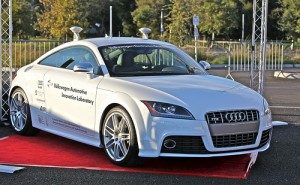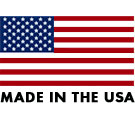
Driverless cars appear to be the wave of the future. Nevada, Florida and California have already legalized licensure of automated vehicles. Once reserved for futuristic movies, there are now several car manufacturers with driverless vehicles in the works, including Ford, General Motors, Toyota, Audi and Volkswagen. Automotive design departments are starting to come up with controls and components that can be used in them. Silicone keypads are a prominent option for these new control designs.
Purpose
One of the constants in fail-safe operations for driverless vehicles is that a human driver can disable the automated pilot and take over if necessary. Silicone rubber molding keypads can be used to do just that. They can also be used to create controls for humans to improve the rider’s experience and create peace of mind.
Automated Controls
For driverless vehicle designers of the future, the needs and wants of the passenger will be shifted over from the present demands of the driver. Even without control over the road, passengers will no doubt want control over other amenities in the vehicle, such as temperature, music, windows, door locks, temperature and interfaces with other electronic devices, like a GPS. These types of rubber keypads are already available in most modern vehicles. They can be installed in the front and rear passenger seats.
Custom Keypad Features
While there are various materials that could be used for the vehicle of the future, designs with custom silicone rubber molding seem to make the most sense. There are several features that silicone rubber keypads have over their plastic and touchpad counterparts, including durability, visibility, affordability and user reassurance.
• Durability – The use of printed rubber keypads on auto consoles isn’t a new one. They are often used now for their durability, especially in humid, hot and cold conditions. Turning on the heat in frigid temperatures is an important feature when it’s snowing outside. Some plastic components are debilitated by temperatures below freezing. That’s not an issue with silicone rubber molding. Coatings and treated surfaces for tomorrow’s vehicles are critical when there are auto mechanics involved. Many petroleum-based products, such as lubricants for engine parts, are used in mechanical repair. Their effects on silicone rubber can be minimized with chemical coatings such as Si Coat II™.
• Visibility – A popular feature in silicone rubber keypads is the ability to use backlighting. The outlined shape of the buttons makes them easy to see, especially in the dark. The nighttime passenger can control things like radio volume and seat comfort at will. Light indicators can also prompt the passenger to intervene when there’s an issue or a problem.
• Reassurance – When it comes to human intervention, people like the reassurance that they know when a key is depressed. Called the tactile response, the user can feel it give way and spring back into position, providing peace of mind that the vehicle has received the message, whatever it may be. This simply isn’t the case with touchscreens.
• Affordability – One reason that custom silicone keypads will work for driverless cars is the ability to reproduce the exact same component countless times once the initial design mold has been made. This cuts down on production costs. The high durability level of rubber keypads reduces the replacement costs.
While the true timetable for driverless cars is still sketchy, Alan Taub, vice president of Research and Development at General Motors, has predicted driverless vehicles will be available by 2020. According to zautos.com, GM’s Cadillac division announced last year that it plans to have partially-automated vehicles ready for the consumer market by 2015. The Insurance Institute expects fully automated vehicles to hit the road as early as 2028. The Institute of Electrical and Electronics Engineers (IEEE) forecasts that as many as 75 percent of the driverless cars on the road in 2040 will have automated drivers.
To learn more about how silicone rubber molding keypads and components from SiTECH can be used in plans for the driverless cars of tomorrow, contact our office.





